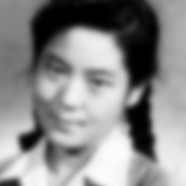China Digital Times has interviewed Robert Hammond Dorsett about his newly released Wen Yiduo 聞一多 translations, Stagnant Water & Other Poems.
CDT: Wen himself worked within the tension between the classical Chinese of his education and the vernacular advocated by his contemporaries. Are there poems where one type of language wins over the other, or where one makes a conciliatory bow to the other?
RD: I believe after the beginning of the May Fourth Movement, Wen Yiduo was committed
almost entirely to the vernacular. After his return to China from the United States, he became a leading expert in classical Chinese literature but always sought to make that literature immediate and relevant. He resisted most of his contemporaries who urged the use of politically dominated free verse … Wherever he found a conflict within himself, he didn’t resolve it, but used that conflict as a source of power. Only by the possession of the past and by its application to the present can a future be built: I believe this was his philosophy.
Click the images above for the full interview.


 Dissertation Reviews
Dissertation Reviews